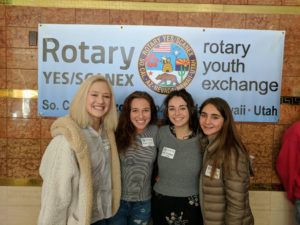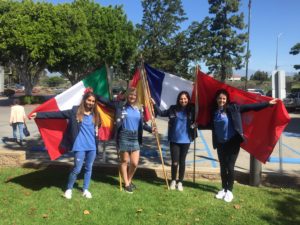 Does your teen have a desire to see the world? Is he or she independent, self-motivated, and curious about other cultures? Then the Rotary Youth Exchange program may be their ticket to travel. There will be an informational meeting on Wednesday, Nov. 15 at 6pm in the Coronado High School Multipurpose Room where you and your CHS student can learn more about these opportunities.
Does your teen have a desire to see the world? Is he or she independent, self-motivated, and curious about other cultures? Then the Rotary Youth Exchange program may be their ticket to travel. There will be an informational meeting on Wednesday, Nov. 15 at 6pm in the Coronado High School Multipurpose Room where you and your CHS student can learn more about these opportunities.
Rotary International facilitates international exchanges through local Rotary clubs in more than 100 countries. There are three options to choose from:
- Long-term exchanges – last for an academic year, during which the student lives with more than one host family and attends school in the host country.
- Short-term exchanges – live with a host family overseas who has a teen your age and then he/she will come to your home and stay with your family for a few weeks (or reverse order).
- International Summer Youth Camps – two to four weeks in length, bringing together students from many countries in an overseas location, and you will be the only American!
Long-Term, Full Academic Year Exchange. So what’s it really like?
The Coronado Times contacted the three CHS juniors that are currently spending this 2017-2018 school year abroad. We emailed each of them some questions to see how their exchange is going thus far (most left here in late August/early September).
Katie Jacobs-Bonnett is in Las Palmas, Gran Canaria, one of the Spanish Canary Islands off the coast of southern Morocco.
Laura Valades is in Sicily, Italy in the province of Syracuse.
Savanna Schwartz is in the southeast of France, in the small town of Lauris.
Why did you want to do a long term exchange?
KATIE: It seemed like a great opportunity to meet new people, learn a new language and immerse myself in a new culture. I’ve been determined to learn Spanish by the end of high school so I had to take this chance.
LAURA: To live in a culture that was unlike my own. I also wanted to gain a different view of the world. I hope to compare the American and Italian cultures and take the best aspects of both and implement them into my life.
SAVANNA: My main motivation was my desire to travel. An exchange offers so many opportunities to experience new things and see unfamiliar places. I also wanted to learn a new language with hopes to become fluent. I hope that by the end I’ll have grown in both my knowledge of the world and also in my independence and responsibility.
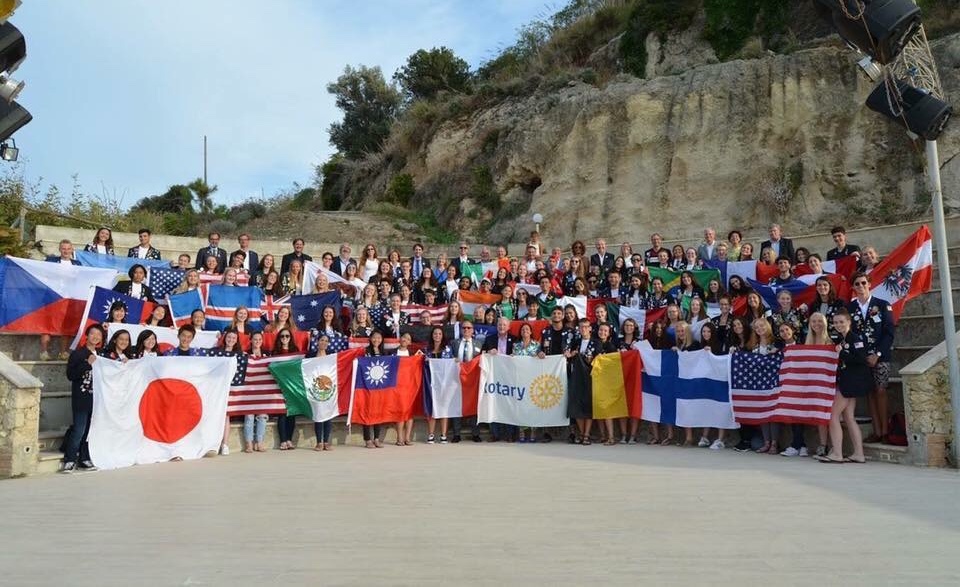
What has been the best part of your exchange so far?
KATIE: Spending time with the new friends that I’ve met. They are all so inclusive and try to make sure I’m having a good time that I forget that I’m away from home.
LAURA: Definitely the food! The people in my town are also incredibly nice. Everyone is friendly and they can’t wait to talk to me. Rotary held an orientation for about 150 students, all in Italy on exchange from different countries, and it was very fun to meet people from all over the world and talk with them.
SAVANNA: The best part has been seeing how quickly my ability to communicate in a foreign language has progressed. It’s very interesting to me to notice the differences in the way people speak and the changes in how I think and speak.
What has surprised you about your new country?
LAURA: In the beginning, everything. One thing though is the evening timeline. We have dinner around 8:30pm and then we go out with friends around 10pm. Everything is much later than I was used to.
SAVANNA: By how quickly I’ve adapted even though routine activities require so much thought and effort as I attempt to communicate with people and navigate a completely foreign place. Even when I’m struggling, my attempts to figure it out are more amusing than stressful.
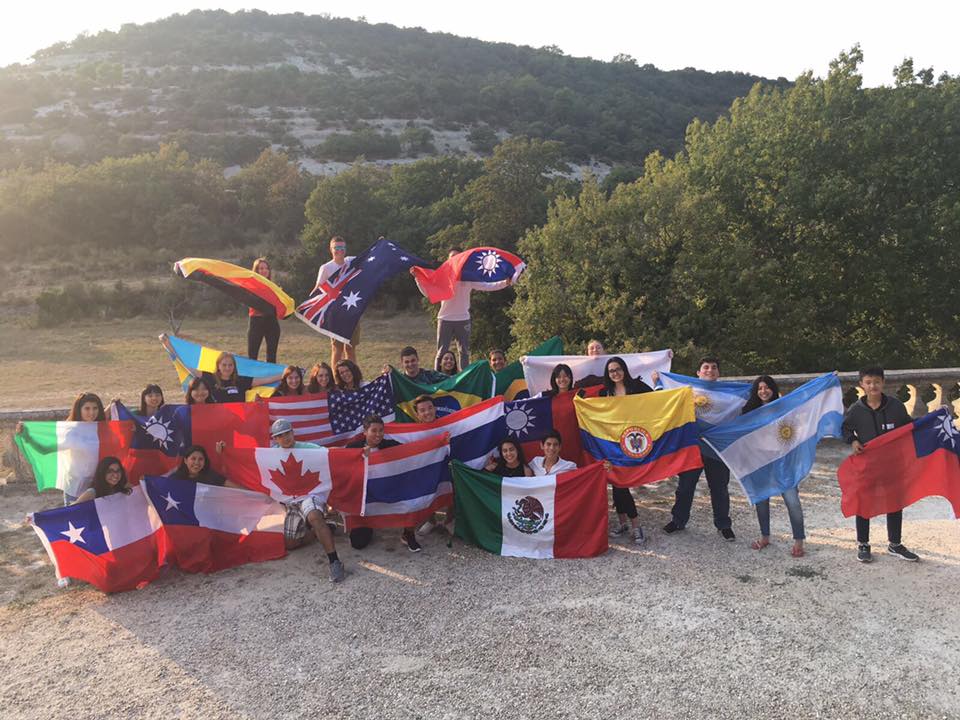
What would you tell a student considering an exchange?
KATIE: If you get the opportunity, take it!! Exchanges are more than just traveling; it really is about becoming part of a culture. Before I left my friends said, “You’re basically going on a year long vacation.” It’s not like that at all. You become part of a new family, you’re more than a guest in the home. It’s not always easy, sometimes it’s uncomfortable; but those situations make you branch out of your comfort zone. Don’t overthink it, just make it happen and it will be so worth it.
As part of the “exchange,” families here are encouraged to host a student that is spending their exchange in America.
Why should someone host an exchange student?
LAURA: It’s a great opportunity to learn about another culture. The students are eager to learn about yours and share theirs.
What would you tell people about being a host family?
SAVANNA: The most important thing is to integrate your student into your family as much as possible and treat them as part of the family. You’ll need a lot of patience and have to be willing to work through the miscommunication and custom differences.
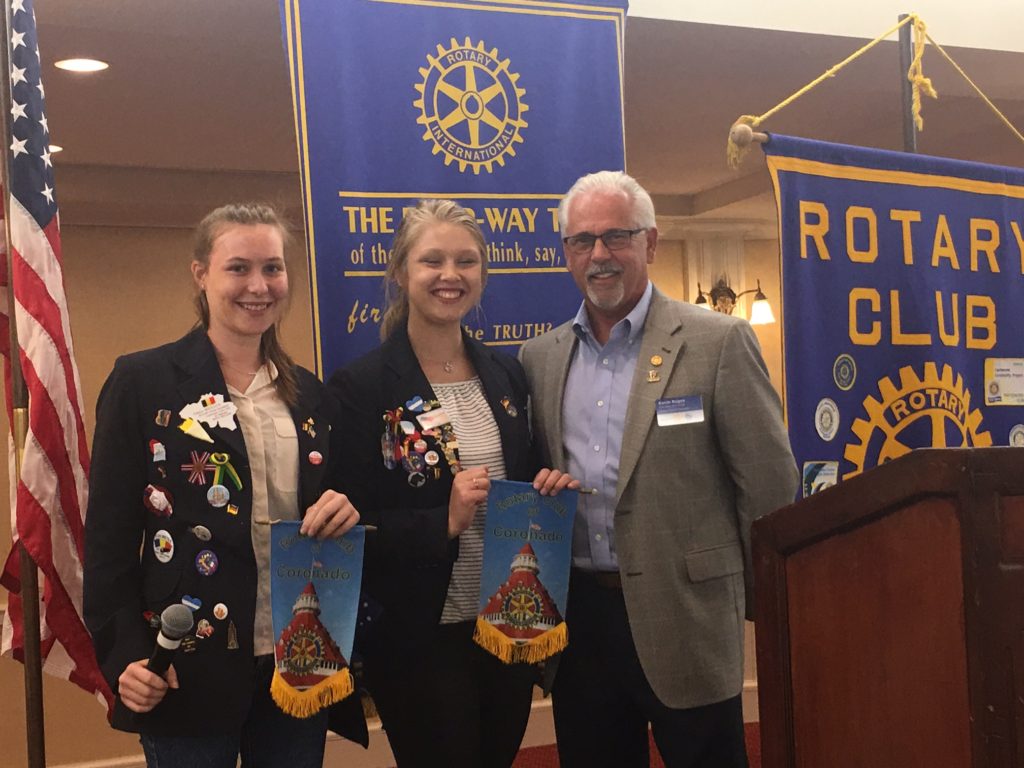
Short Term Exchanges
In a short term summer exchange, two students (one from here, one from another country) will spend the full time together, half here, half there. Coronado Rotarian, Karen Strabala, is Coronado’s Rotary Youth Exchange Officer. She works hard at finding a good match between two students. Once chosen, the students connect on social media, start Skyping or Facetiming, and get to know each other. First one travels to the other’s country for a minimum of three weeks. Then they both travel to the other’s country to explore that one as well.
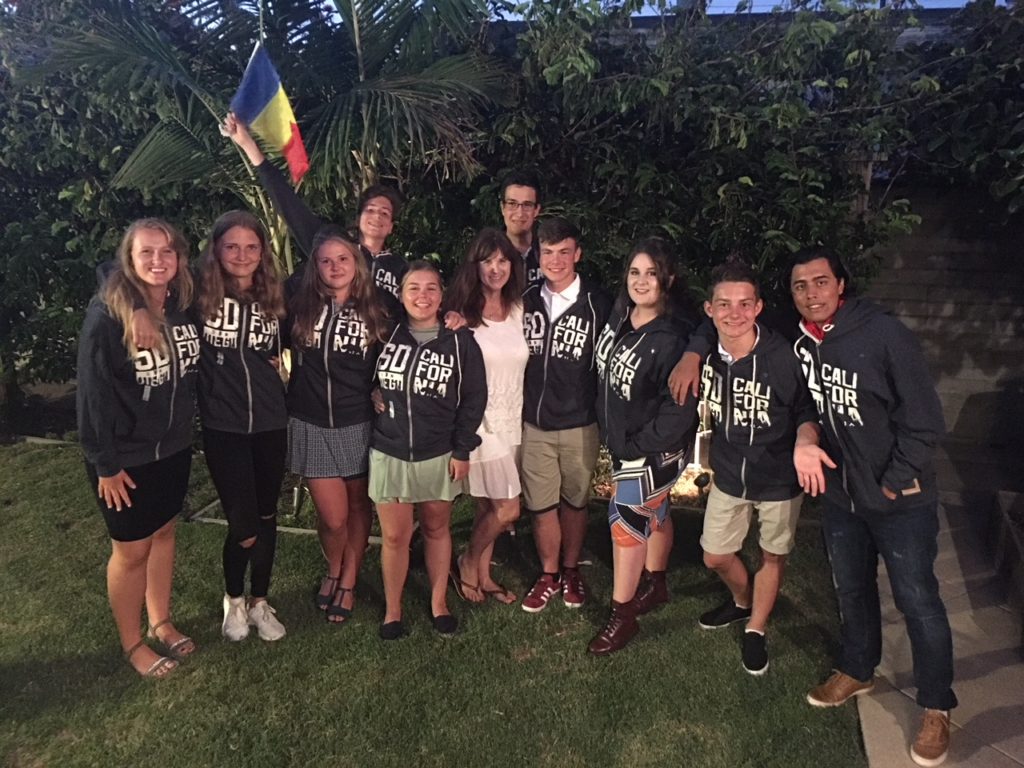
Summer Camps
The summer camp programs are tons of fun. About 8 to 10 students from different countries do the camp together. For two weeks the kids’ days are filled with Rotary planned activities relating to the theme of the camp. This past summer, Coronado Rotary brought in 10 students, 5 boys and 5 girls, for the Fun in the Sun San Diego camp. There are various themed camps throughout the participating countries.
If your teen wants to do an exchange, they don’t have to be a scholar or the most popular. What they have to do, is be able to get on a plane by themself knowing that they’ll be picked up in their final destination by their new host family. They need to be flexible, with a can-do attitude. Going on an exchange should never be something that the parents tell them to do; the student has to really want it. There will be applications and interviews, orientations and paperwork. But the journey, no matter which one is chosen, is well worth the effort.
At the meeting on Wednesday each of the three exchange programs will be explained. The two students here in Coronado for this school year will share their stories of travel from their homes to their host families in Coronado.
A saying often repeated when referring to the long term exchange is:
It’s not a year in the life, it’s a life in the year.




